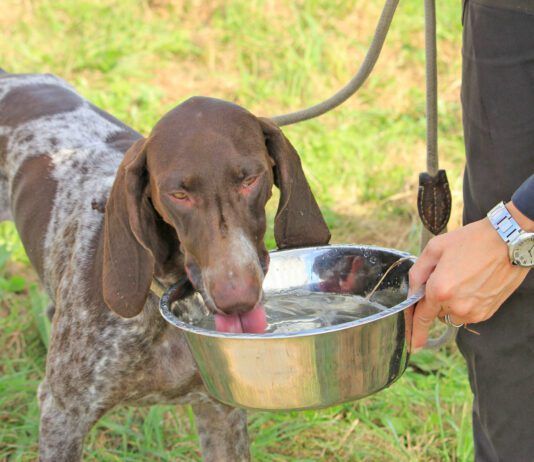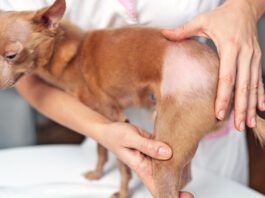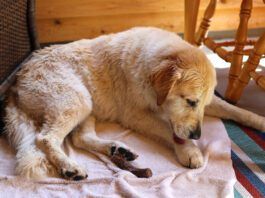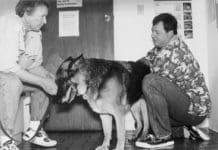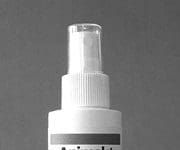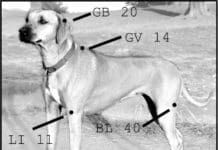Yeast Infections in Dogs
Thirty years ago, even though the systemic yeast infection called candidiasis had already become an epidemic, practically no one knew anything about it. Even now conventional medicine tends to ignore the problem, but word has spread among health-conscious consumers. If you haven't had a candida yeast infection yourself, you know dozens of people who have and dozens of dogs as well.
The Many Benefits of Calendula for Your Dog
The world of herbal medicine offers hundreds of choices to consider when treating your dog. Some are rather obscure; almost inaccessible to anyone but those who are connected to an exclusive, exotic source. Yet others are within such easy reach that they are often overlooked, considered mundane and useless simply by their abundance. After all, who would think first of the dandelions growing along the back fence when looking for an herbal approach to a rare and inoperable cancer?
Hot Spots and Lick Granulomas
Your dog has a weeping, oozing wound on her leg or a yucky red blob on the top of her head, and at first you wonder how she injured herself. But if you've been around the dog-care block, you realize that it isn't a cut or scrape. That gooey mess might be diagnosed as pyotraumatic dermatitis, wet eczema, or a Staphylococcus intermedius infection, but it's what everyone calls a hot spot.
Understanding Dog Allergies
Over the years I have treated literally thousands of animal patients for allergic problems, using both Western and alternative medicine methods. The more I think I know about allergies, the more I read and learn about them, the more confused I get. Nothing I have tried therapeutically works with all my patients; some patients get better with hardly any effort on my part; others finally respond to my third or fourth treatment protocol (or 9th or 10th); and some never respond, no matter what I try.
Home Remedies For Your Dog’s Skin Inflammation
long soak with a towel infused with an herbal skin rinse.üA juniper decoction is easy to make and very effective for treating a dog whose skin problem is severe
Preventing Hot Spots
Upon waking up one morning many years ago, I greeted Mandy, my six-year-old tri-color Collie, who slept beside my bed. As I leaned over to stroke her luxurious black coat, I gasped. There was an angry, oozing sore the size of a grapefruit on the outside of her right hind leg. It was cherry red, inflamed, and looked incredibly painful. I was horrified. I worked at a humane society at the time. This looked like the kind of wound we would investigate an irresponsible owner for, for not providing proper care and attention! I was sure it hadn't been there the night before. What had happened to my dog?
Change of Dog Food Stops Seizures
On April Fool's Day 1996, my soon-to-be-husband took me to get a puppy. We already had one dog, Ladybird, but she was getting older and we felt a young friend would encourage her to be more playful. We also hoped Ladybird would pass on some of her fine qualities to the puppy. We drove out of town to a place where people play paintball. There were more than a dozen young dogs running around, and the owner told us to take our pick. One young female seemed to want my attention more than any of the others, and I fell in love with her pretty face. We took her home and named her Cheyenne.
Mangy Mutts?
What is demodectic mange caused by? Why are Boxers so susceptible to it? How can all these puppies be affected by it when I know for a fact that none of their parents or even grandparents ever had demodectic mange? How would you recommend treating it in an older dog, and how would you treat it in puppies?
Lick Granulomas
A lick granuloma is a red, raw, and ugly looking wound, caused by a dog's incessant licking. The last thing one would think is that it can be a blessing in disguise, but it seems to have been just that for Biggie, a 10-year-old Weimaraner owned by Maryland breeders Bob and Virginia (Gini) Selner. Biggie (AKA Wyngate's Music Man") is one of five dogs who live with the Selners
Holistic Treatments for Canine Skin Rashes
Juniper suffered a brush with bloat


